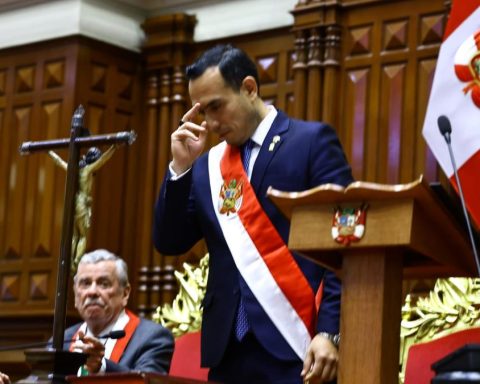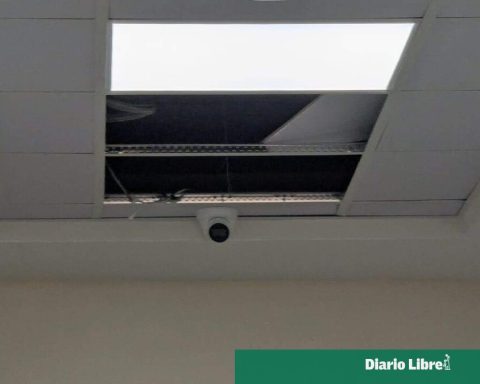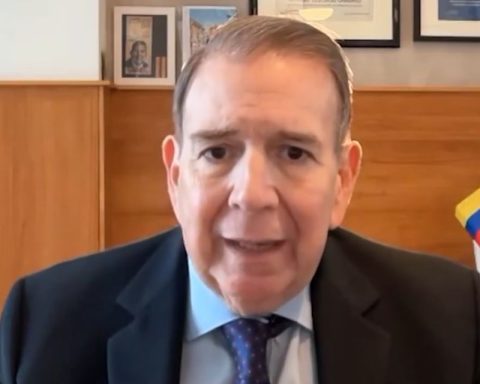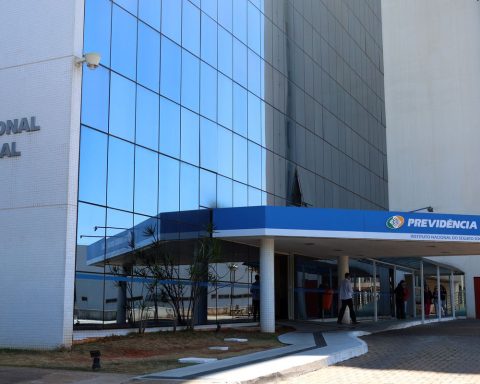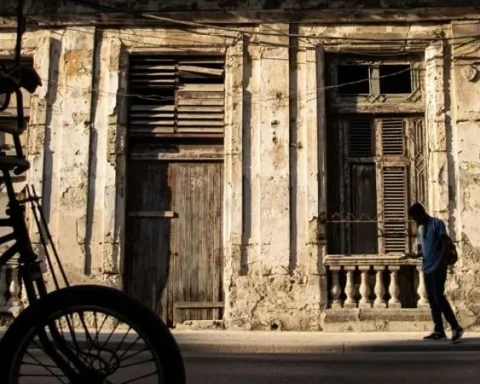At first glance it would seem to be good news. According to a report just published by the World Bank, in 2024 economic growth in Latin America and the Caribbean will reach 1.9 percent, slightly above calculations made months ago.
(Read: Why Latin America is at risk of adjusting to a ‘third lost decade’).
In the same way, The projection for next year points to a rate of 2.6 percent, which some will find acceptable. However, for the multilateral organization this is not the case.: “The region is in a state of robust mediocrity”states his report.
Such an acidic qualifier is based on evidence. Compared to the other geographical areas of the planet, Latin America is the one with the worst performance of all, something that has been more the norm than the exception calendar after calendar, since the middle of the last decade.
Different indicators indicate that this part of the globe is not rising, despite having unique natural resources and a relatively young and educated population. Although the reality is very heterogeneous when countries are examined individually, those that are making vigorous progress can be counted on the fingers of one hand.
(Also: Why does the Colombian economy continue to show signs of growth? This explains Raddar).
The above does not ignore that there are things to highlight. For example, inflation that was once a headache is now at manageable levels thanks to the policies adopted by the respective central banks. Likewise, after the spending efforts brought about by the pandemic came the attempt to stabilize public accounts. There are also no financial crises, beyond the fact that the banks’ past-due loans have increased.
On the other hand, the international context would seem to be better, without ignoring the latent dangers in the field of geopolitics. As a result of price behavior in the United States and Europe, interest rates should decrease, which would reduce the cost of debt service.
But less pressure on that front cannot be interpreted as an invitation to let our guard down. If Latin America and the Caribbean do not amend their plan, the results will tend to be the same as those that have placed them at the rear of the world for a dozen years.
Money Latin America
iStock
Pending tasks
And this without counting additional challenges such as those derived from climate change. It has been said endlessly, but the region is particularly vulnerable to the extreme swings of the elements, as proven by phenomena that include droughts, floods or more intense and frequent hurricanes.
As if these challenges were not enough, there is a feeling that opportunities are passing us by. A specific case is that of the wave of relocation of industrial plants in response to the trade tensions between China and the United States that arose since 2018, during the presidency of Donald Trump.
At the time, The expectation was that hundreds of factories would be located on this side of the Pacific Ocean to access the North American market under preferential conditions, within what is known in English as nearshoring.. Although some of this has happened, with Mexico being the biggest beneficiary, the balance is less positive than was believed.
(Besides: Petro says that ‘there was no discovery’ of America: ‘before 1492 there were already humans’).
For starters, foreign direct investment flows are still about 25 percent lower than in 2011. Furthermore, the share of money going to greenfield projects hasn’t risen much either. The only exception is Costa Rica and the Dominican Republic, due to areas such as semiconductors and medical devices.
Another way to look at the situation is to establish what part of the exports that China has stopped making to the United States came from here. The numbers show that about a third was supplied by the region – which is important – but they also indicate that the rest of the world took the largest slice despite considerations such as distance.
Why could the train be leaving us? In a document released in April, the World Bank stated that “The wage and geographic advantages of Latin America and the Caribbean – in constant evolution – are offset by the high costs of domestic financing, the low level of training of the workforce and the high levels of violence, all of them exacerbated by some of the “highest corporate tax rates in the world”.
To the above we could add the march of regional politics, characterized by ideological lurches and the presence of populism. Doubts about stability in the rules of the game mean that places like Vietnam end up being more attractive than those found in Uncle Sam’s so-called backyard.
Due to circumstances such as the one mentioned, Latin America and the Caribbean remain in a kind of vicious circle that makes it difficult for them to grow faster. Thus, the results in the fight against poverty are modest, a situation that stimulates the migration of hundreds of thousands who seek a better future in other latitudes.
Among the tools that some governments have adopted to close the gaps is raising minimum wages significantly. But that output tends to be depleted when used excessively. For the World Bank, “Any subsequent increase represents a burden for companies of all sizes that can discourage job creation, cause unemployment, increase informality and even poverty”.
Finding a path that leads to a better future forces us to identify what possibilities appear. One of them is to take advantage of what is known as the green transition, consisting of sustainable production schemes based on the generation of clean energy. Another is to promote reforms that pave the way for productive investment.
To the previous list, the multilateral entity adds a different strategy regarding tax collection. This explains the title of the document that appeared last week: ‘Wealth taxes for equity and growth’.

Latin America and the Caribbean
iStock
Share the cake
There is no doubt that the approach is controversial. On the one hand, there is the need to raise more resources so that public investment in areas such as infrastructure, education or productivity is greater. On the other is the discussion about whether this is the way to obtain more funds, without discounting additional options.
Specifically, the World Bank says that “different calculations indicate that up to 12 percent of public spending, equivalent to 4 percent of GDP, could be saved by improving the procurement process and human resources management” in the area. Greater efficiency in state operations would allow governments to do more, without citizens necessarily being obliged to pay for it.
Accepting these considerations, the organization highlights something unquestionable: The tax rates paid by companies in Latin America are among the highest in the world. Both the rate applied to income is high and there are abundant provisions that make it more difficult to deduct expenses in favor of productive investment.
When international comparisons are made. Latin America is located above Asia or the nations that make up the OECD. Colombia is the country with the highest burdens, followed by Brazil, but the others are not much further away. Only Paraguay, Barbados, Belize and the Bahamas are below the Asian average.
Recomposing loads requires examining different sources. In this regard, a proposal focuses on taxes on wealth, an issue that is not new, but that has regained strength in recent times, among others due to the approaches of the Frenchman Thomas Piketty, who argues that capital pays less tax contributions than they should.
Answering the question of what assets to tax is not easy. Experts accept that this is not an easy issue, as it demands good administrative capacity in the authorities, apart from deterring investment or potentially leading to capital flight.
Carlos Felipe Jaramillo, who is the vice president of the World Bank for Latin America and the Caribbean, maintains that “among the tax reform options in the region, property wealth taxes may be one to consider.” The Colombian-born economist states that “80 percent of the wealth in the region is in real estate, even among the top 10 percent of earners.”
However, he adds that “countries typically collect only 2 percent of their tax revenue from property taxes, while in North America, that level is close to 12.8 percent of tax revenue.” He clarifies that “it is essential that any reform be carefully designed to ensure progressivity and avoid burdening low-income homeowners.”
Faced with the observation that in many places these are municipal taxes, the expert responds that greater income from this concept would help reduce the amount of national transfers. Nowadays, what is known as a “vertical imbalance” appears that would be partially corrected if what is obtained from property taxes serves to finance the attention of local needs.
There is no doubt that the idea is bold and will be the cause of many controversies. But many agree that at least progress is required in disclosing the value of properties, which are usually registered at a fraction of their commercial value.
Experiences such as those of Bogotá and Barranquilla with their cadastral training and updating processes are considered by the Bank as an example worth observing. Added to this is that there are technological tools that allow progress in the identification, delimitation and valuation of properties.
Apart from the promise that property taxes represent for the entity, this also addresses another controversial point such as defining whether taxing the super-rich is the solution to the fiscal deficits that afflict Latin American countries. The issue was proposed by the Brazilian president, Lula da Silva, whose country has just held the rotating presidency of the Group of Twenty.
In fact, at the end of last February, professor at the University of Paris Gabriel Zucman proposed at a meeting of finance ministers that took place in São Paulo that a 2 percent rate applicable to the nearly 3,000 billionaires that exist in the planet would generate between 200,000 and 250,000 million dollars annually. Despite the insistence of the hosts, the initiative did not go ahead.
Even if it were to prosper, the World Bank believes that this is not the solution in the Latin American case.
The reason is that the region is home to fewer billionaires than the state of California in the United States, which is equivalent to 0.13 per million inhabitants, compared to two, which is the North American average.
Although this conclusion will not sit well with those who want the response to the problems of lack of public resources to be assumed by a third party, mathematics does not lie. “Beyond their unpopularity, in order to achieve income and equity goals, tax systems must expand the base of taxed individuals”maintains the multilateral organization.
Given such a verdict, the implicit message is that to get out of “robust mediocrity”, Latin America and the Caribbean need a different score. The political climate is not helping and people do not want sacrifices either, but if things are not done differently, the region will remain trapped in its frustrations without seeing the light at the end of the tunnel.
RICARDO AVILA
Special for EL TIEMPO
In X: @ravilapinto














